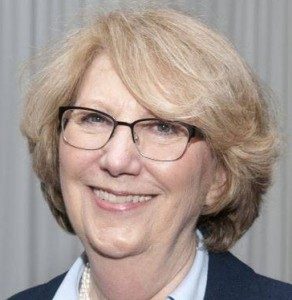On September 30, 2018, eighty-five mental health professionals attended the NJ-ACT workshop “Empirically-Supported CBT for Complicated Grief,” presented by Katherine Shear, M.D.
By Lynn Mollick, Ph.D.
I. Acute Grief
Dr. Shear explained that Acute Grief is a normal reaction to the loss of a loved one. Symptoms of Acute Grief may include:
- Strong negative emotions — yearning, longing, sorrow, anxiety, guilt, anger, or shame
- Dysfunctional thoughts – disbelief; pervasive, preoccupying thoughts of the deceased that may interfere with concentration
- Avoidance of loss reminders — restricted activities, reduced socializing, increased sleep
- Disorientation and feeling disconnected
Acute Grief is not depression. People experiencing Acute Grief do experience pleasure; depressed people do not.
Some authorities believe that Acute Grief lasts six months or a year, but Dr. Shear believes there is no time table. Acute Grief waxes and wanes until the sufferer adapts to the reality of their loss and can envision a meaningful and satisfying life. From time to time, grief will still be elicited — perhaps intensely — but it no longer interferes with day-to-day functioning.
II. Complicated Grief
Most people adapt to grief naturally, without therapy. However, some individuals become over-engaged with grief. Their functioning becomes impaired and they are unable to shift between grief and other emotions and behaviors. This syndrome is call “Complicated Grief.”
Acute Grief is different for each individual, but Complicated Grief is more or less the same for everyone. Symptoms of Complicated Grief include: Preoccupation with the deceased; feeling stunned or dazed; loneliness and disbelief; bitterness and/or anger about the death; believing it is unfair to go on living when the beloved has died; guilt, pessimism, envy; difficulty caring about and trusting others.
Patients with Complicated Grief often neglect their health. They isolate themselves socially and are at risk for suicide.
Treatments that work for depression – medication, Interpersonal Therapy, Cognitive Therapy – are not helpful for Complicated Grief. But Dr. Shear has developed a treatment called Complicated Grief Therapy (CGT) with good empirical support.
III. Complicated Grief Therapy (CGT)
CGT is highly structured. Every session focuses on the two essential tasks of successful grief adaptation: accepting the loss and renewing the ability to experience meaning, purpose, and joy. CGT does not attempt to eliminate or reduce the experience of grief because grief is assumed to be a natural and appropriate response to loss. CGT includes the following components:
- Self-Monitoring. Begin self-monitoring of grief at the first session to help patients become familiar with their grief. Ask patients to identify the situations where they experienced the most and the least grief each day and instruct them to make a 1 to 10 rating of these experiences.
- Re-engaging with Rewarding Activities. Therapists should review self-monitoring records at the beginning of each session. Ask neutral questions about what patients notice in the record. Re-engaging with rewarding activities will be easier during periods when grief is at a low intensity. Periods of high or low intensity are both good times to encourage social interaction.
- Moments of Respite. At the beginning of treatment, encourage patients to take small “moments of respite” from grief every day, engaging in simple, rewarding activities the patient used to enjoy.
- Aspirational goals. These are activities patients may have dreamed of but never achieved. Complicated Grief patients often resist this intervention, but bringing up aspirational goals frequently indicates that the therapist has confidence in the patient’s ability to find a rewarding new life.
- Strengthening Relationships. Complicated Grief makes patients wary of others. Encourage them to think of people who might be supportive. Because they believe they should be “strong” or “independent,” Complicated Grief patients often have difficulty asking for help.
To strengthen patients’ relationships with their family and friends, Dr. Shear asks patients to bring a significant other to a session. The significant other often reveals important information about the patient, especially avoidances. Explore ways the significant other can help, but if there is conflict in this relationship, suggest setting it aside until Complicated Grief resolves. - Living with Reminders. Complicated grief patients often avoid situations that remind them of the lost loved one. Help them gradually stop avoiding these reminders and gradually begin experiencing these situations again.
- Telling the story of how the patient learned of the death reduces the emotional intensity of the grief and helps patients accept the reality of their loss. Do this exercise imaginally and ask patients to focus on what they saw, heard, and felt. In discussion afterwards, encourage patients to reflect on the experience. Help patients resolve any troubling thoughts. Record this exercise for listening at home and repeat the exercise multiple times in sessions.
- Connecting with Memories. Complicated Grief patients avoid situations that trigger grief. Build a hierarchy of these situations and do in vivo exposure. The rationale is to learn what the loss means. The experience helps patients accept their grief so they can live less constricted lives.
Although Complicated Grief patients may daydream about being with the deceased, they also avoid their memories of the beloved. To help them integrate these memories into their lives, Dr. Shear asks them to list positive memories, very positive memories, the most positive memories, not-so-positive memories, and memories that are both positive and not-so-positive.
To encourage integration of memories, patients imagine a conversation with the deceased. They play both themselves and the person they lost, and each can ask any question or say whatever they want. This exercise creates a strong, new connection with the deceased.
Further information about CGT and Columbia University’s Center for Complicated Grief is available here.